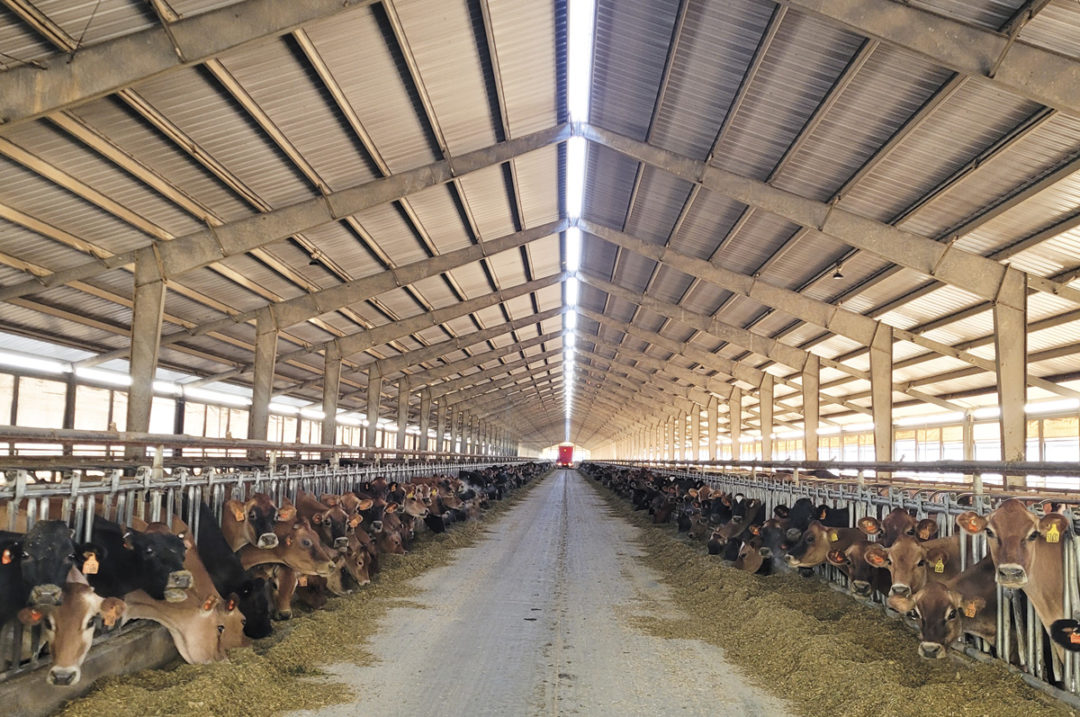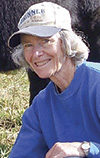Labor is a big issue in most ag enterprises; it is difficult to attract and keep dependable workers. This is especially true in the dairy industry. Today, there are more people asking for jobs than in the past few years during COVID-19, but now many of them just want a paycheck or two before moving on. Some go back on unemployment or move to different jobs, but they don’t seem to stay. What can dairies do to retain these entry-level laborers? Some of the ideas being discussed include offering a bonus after a certain length of time, giving time off to do something important to them, better housing options, job advancement opportunities, etc.
Double A Dairy near Jerome, Idaho, recently received an award for workforce development. Armando Cordero, one of Double A Dairy’s managers, has been instrumental in trying to obtain and keep good workers.
The dairy is owned by brothers Ron and Don Aardema and is currently milking close to 18,000 cows in two locations. “We are divided into seven departments with a manager for each of them: farm, maintenance, calf ranch, fresh-cow barn, herdsman, feed manager and me. I am the parlor and milk quality manager,” Cordero says.
 Filling calf bottles and feeding hungry calves takes a lot of coordination and care for details. Milk is filled into bottles pre-loaded in the trailer to make delivery easier. Photo by Armando Cordero.
Filling calf bottles and feeding hungry calves takes a lot of coordination and care for details. Milk is filled into bottles pre-loaded in the trailer to make delivery easier. Photo by Armando Cordero.
“We have close to 310 employees. I have 80 in my department; it is the largest and includes the milkers, cow-pushers, people in maintenance, the hospital crew and the parlor supervisors. In the company, we also have a human resource department, which helps with all the paperwork, animal care and safety training videos for all new employees. We are thankful for all the people who have been involved in the past to create our policies and help to create all the employment training. We have not done this all by ourselves; it is a team effort. With the managers, veterinarians and outside experts, together we create good protocols and policies that work very well,” he says.
He has been working for Double A Dairy for 21 years. He is from Mexico and has a veterinary degree from Mexico, but is not licensed as a veterinarian in the U.S. The veterinary background and knowledge helps him with the cattle, however.
 The feeding crew takes the trailer-filled bottles down the rows of hutches, where workers quickly put the bottles into the bottle holders before the milk gets cold. Photo by Armando Cordero.
The feeding crew takes the trailer-filled bottles down the rows of hutches, where workers quickly put the bottles into the bottle holders before the milk gets cold. Photo by Armando Cordero.
“Knowing that people look for work in order to support their families, we established a good salary start and it increases in the following months. This is one way we attract good employees; this helps encourage people to want to stay and work. But the salary is not the main reason people stay with us. Those reasons are: a good work environment, humane and respectful treatment, an understanding that there are family or personal emergencies and that they can have extra days off without worrying about losing the job, and flexibility of work schedules from 40 to 60 hours. With shifts only in the morning or rotating shifts, this helps accommodate the needs of their families,” he says.
“About 95 percent of our workers are Hispanic; we have people from Mexico, Peru, Salvador and Honduras. We face cultural differences, so part of the training we offer includes explaining these differences, especially in the translation of words between one country and another to avoid misunderstandings or people becoming offended. We are like a family; when they can feel that we are taking care of them, then they try harder to put all that training into practice,” he says.
One way to find more workers is through the people who are already working here. “If we have an opening, we ask our workers if they know somebody who is looking for work. This is a good way to find people to fill a spot,” Cordero says.
 It takes a practiced eye to capture any signs of illness or problems with the animals. It's a specialized task on the farm to care for calf feeding and calf health. Calves are often jacketed for added warmth. Photo by Armando Cordero.
It takes a practiced eye to capture any signs of illness or problems with the animals. It's a specialized task on the farm to care for calf feeding and calf health. Calves are often jacketed for added warmth. Photo by Armando Cordero.
“We also use social media and post the job opportunities in local stores. Those are the three best ways we utilize to find the people we are looking for. Our goal is for the employees to love the cows and like the job. We have good protocols and a good diet for the cows, and a nice place for them to lie down and we monitor them closely. If there is something that needs to be changed or improved, we do it,” he says.
“We spend a lot of time training our employees. We used to have a high turnover, especially in the barn with the milkers; this job is physically demanding, and they have to just go-go-go. So, what we’ve done to try to reduce turnovers in that position is give them a little break in their shift. We used to wash and sanitize the milkline at the end of the shift, so now we do it in the middle of the shift so the milkers can have a 15- to 20-minute break while that is being done, and they can have lunch at that time if they want. They can enjoy a break, eat lunch and chat with their co-workers,” he says.
“We care about them, and their families, and we help them put their training into practice. We try to be more flexible; we have two extra milkers for covering vacations or special needs of the people, so it is easier for us to let someone take a day off and we can still finish our jobs in the dairy,” says Cordero. In a dairy this large, it helps to have extra people; the work is tiring and there are times they need the extra workers.
 Workers in the milking parlor prepare cows for cleanliness before connecting with the milking suction lines. The coordination of all teams on the dairy requires cross-training and good working relationships. Photo by Armando Cordero.
Workers in the milking parlor prepare cows for cleanliness before connecting with the milking suction lines. The coordination of all teams on the dairy requires cross-training and good working relationships. Photo by Armando Cordero.
“We put a lot of effort into training – which is about protocol, the cow care and safety. We don’t want people hurt or having a permanent injury, so we are very concerned about safety. We provide safety vests and glasses when they are working in the barn because most of the workers don’t have any background experience working with animals. We teach them to not get too close to the cows and to always be careful and think ahead,” Cordero explains.
Glanbia Foods nominated this dairy to receive an award for workforce development. “Receiving this award was really important for us, to have people recognize that we are trying to do the best we can for our people, and that the workers are very important for our industry. They deserve it. They come looking for a job, but we manage to get them to love the cows and respect the company and want to do the job. We are happy that people outside the company recognize that we are trying to do the best for the industry we love. My part of the company provides jobs for 80 people, and we want to do our best for their families as well as for the cows,” Cordero says.
There are many misconceptions about the dairy industry and how dairy cows and employees are treated. Cordero says, “We want to change those misunderstandings and it’s good to have this recognition for the work we do. They chose me to represent Double A because I have the department that generally has the most turnover in workers just because the work is so physically demanding, but this award is possible because of the great teamwork among all the areas that make up Double A Dairy – and we’ve done our best to resolve some of the problems.”






